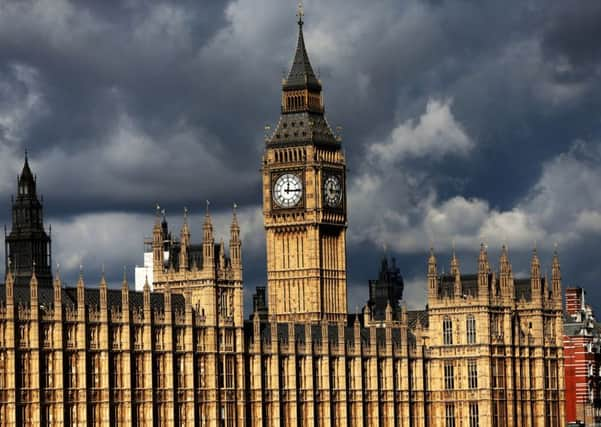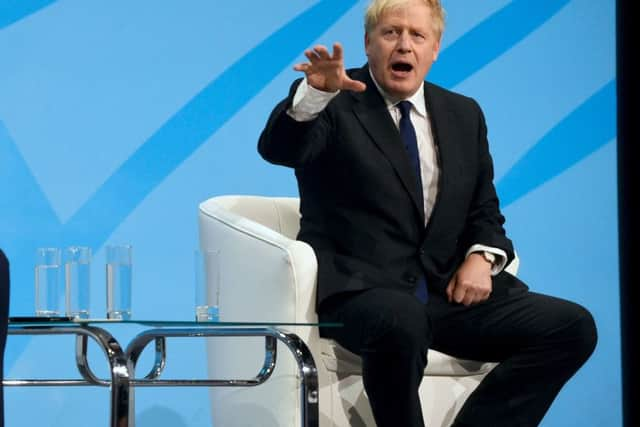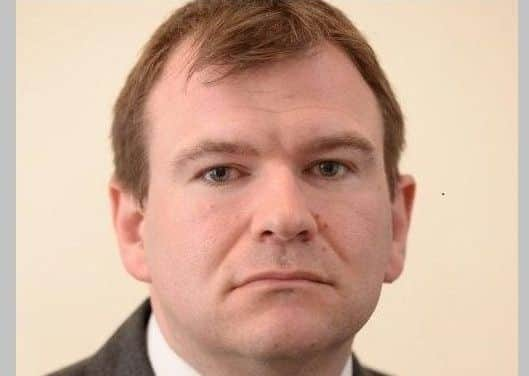What does it mean if Boris Johnson prorogues Parliament to push through Brexit? Here is a guide


But his team have sought to play down speculation that he could prorogue Parliament in late October — effectively a temporary shutdown — ahead of a Queen’s Speech in early November.
• What is prorogation?
Prorogation is the formal process that signals the end of a parliamentary session and brings nearly all Westminster business — including most legislation — to a close.


Advertisement
Hide AdAdvertisement
Hide AdMPs will only usually return to the Commons when a new parliamentary session begins, marked by the State Opening of Parliament and the Queen’s Speech.
• Why might a new prime minister prorogue Parliament?
If Mr Johnson believed that the best way to deliver his commitment to leave the EU on October 31 was to do so without a negotiated deal, he could face stiff opposition from MPs.
While it remains the legal default for the UK to leave the EU on October 31, any motions passed by MPs calling for an extension to the deadline — or the revocation of Article 50, effectively stopping the clock — would carry significant symbolic and political weight that would be hard for a prime minister to ignore.


But if MPs are not in the Commons, they would not be able to pass any wrecking motions designed to block Brexit.
• Has a prime minister done anything similar before?
Advertisement
Hide AdAdvertisement
Hide AdParliament has not been prorogued by a government as a means of circumventing opposition to government policy since 1948 under Clement Attlee.
He took the step in order to bypass opposition in the House of Lords to the Parliament Bill, which limited their powers.
• Why is it so controversial?
Not only does it shut MPs out of the process, it would also drag the Queen into a political row.
Formally it is the monarch who prorogues Parliament, and asking the Queen to endorse such a move would create a constitutional crisis.
Advertisement
Hide AdAdvertisement
Hide AdSenior ministers opposed to prorogation have suggested that Speaker John Bercow could simply carry on sitting in the Commons and invite MPs to turn up and pass their own motions — effectively creating a rebel government.
• What has Mr Johnson said on the issue?
He has previously said he is not going to take any option off the table and it would be “absolutely bizarre at this stage in the negotiations for the UK — yet again — to be weakening its own position”.
On the prospect of an October prorogation, a source close to the campaign told PA the team was “discussing everything as an option”, but Mr Johnson wanted to secure a deal with Brussels and avoid a no-deal exit.
• What about his critics?
Mr Johnson’s Tory leadership rival, Jeremy Hunt, said: “When that has happened in the past, when Parliament has been shut down against its will, we actually had a civil war.”
Advertisement
Hide AdAdvertisement
Hide AdFormer prime minister Sir John Major has threatened legal action if Mr Johnson attempts to go down that route.
“I seem to recall that the Brexiteers, led by Mr Johnson, actually campaigned in the referendum for the sovereignty of Parliament,” he said. “They can’t be concerned for the sovereignty of Parliament except when it is inconvenient to Mr Johnson.”
• David Hughes is political editor of Press Association